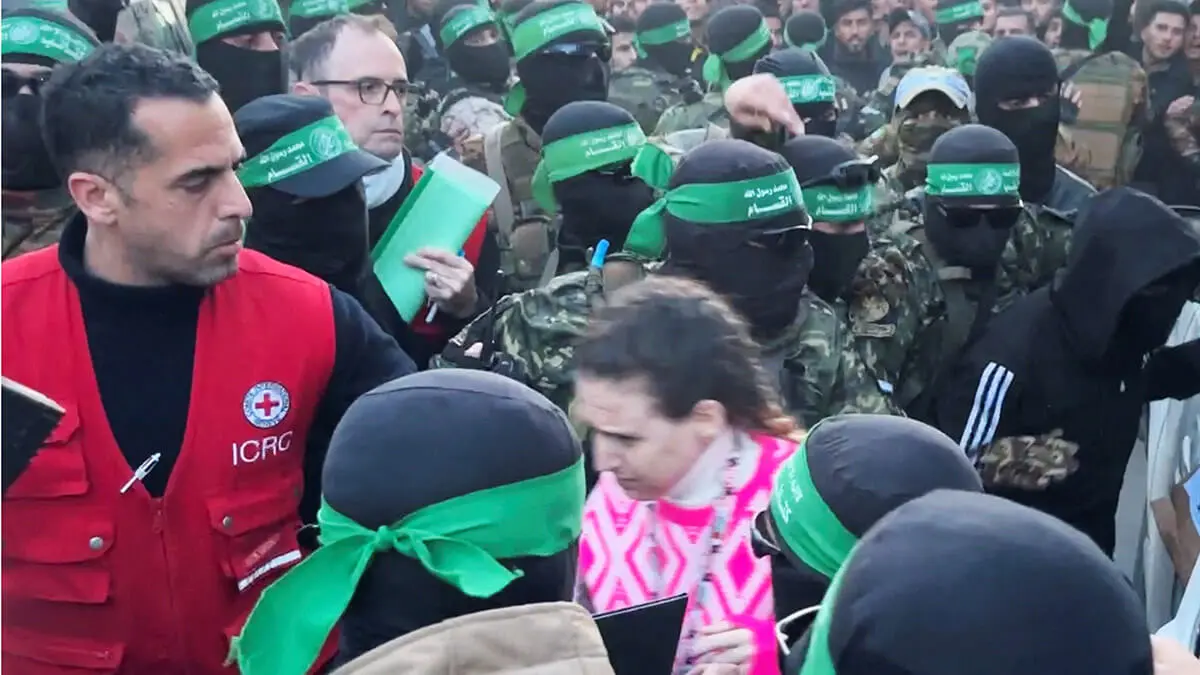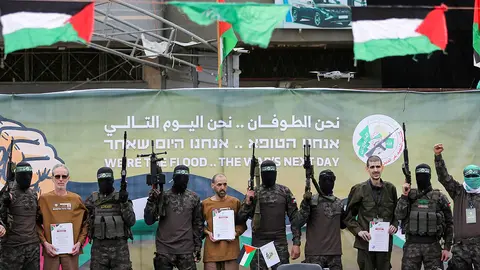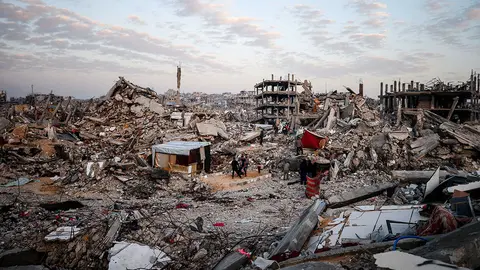Jordan points to the Muslim Brotherhood and shows concern over the Iran-Hamas nexus

Jordan is opposed to the influence of the Muslim Brotherhood, an organisation classified as terrorist by various countries such as the United States and Egypt.
Jordan announced the arrest of 16 members of the Muslim Brotherhood who were likely linked to the Palestinian Islamist group Hamas.
Jordanian security said the militants were trained and financed in Lebanon and had plotted attacks on targets inside the kingdom involving rockets and drones, authorities said on Tuesday.
Jordanian authorities said at least one rocket was ready to be launched as part of an operation that had been under surveillance by security forces since 2021.
The announcement comes after several attempts last year to smuggle weapons to the neighbouring Israeli-occupied West Bank were foiled by Jordanian authorities.
The attempted smuggling involved several Jordanians linked to Palestinian militants and were carried out by infiltrators linked to pro-Iranian militias in Syria and Lebanon-based radical Palestinian groups
What worries King Abdullah II about the successive dismantling of covert cells is that the Hamas connection in these attempts implies the involvement of Iran in efforts to destabilise Jordan .
They add that providing assistance to such cells in producing limited-impact weapons, and preparing to carry out bombings against key government buildings, tourism sites or economic infrastructure in order to cast doubt on the country’s stability, fits in with Tehran’s plans to pressure regional countries, such as Jordan.
The Hashemite kingdom has sought to distance itself from the showdown between Iran and Israel, although Tehran has always felt Amman was siding with the US and Israel.
In recent years, Jordan has treated the activities of Hamas and Islamic Jihad as part of the Iranian agenda.
The Gaza war has blurred the line between loyalty to Iran’s Shia clerical regime and affiliation to militant Sunni groups such as the Muslim Brotherhood.
The Brotherhood, one of the Arab world’s oldest and most influential Islamist movements, denied any links to the alleged plot, said the group had “always pursued a peaceful political course” and that Jordan’s branch of the Brotherhood had operated legally for decades.
But Muslim Brotherhood-affiliated groups in the Arab world have also been accused many times of maintaining secret operations aimed at toppling regimes by force, say analysts.
The movement’s political arm in Jordan, the Islamic Action Front, became the largest political grouping in the parliament after last September’s elections, although most seats are still held by government supporters.
Security forces found a rocket manufacturing facility alongside a drone factory, according to a statement by the Jordanian General Intelligence Department released on state media.
“The plot aimed at harming national security, sowing chaos and causing material destruction inside the kingdom,” the statement said.
The suspects were referred to the state security court for trial.
Officials say the Muslim Brotherhood could be banned if they were implicated in the case, as set under the constitution.
“We are talking about new tactics, rockets and drones. This means a complete change in the way the Muslim Brotherhood are dealing with Jordan and targeting its security,” said Amer Al Sabaileh, a prominent security analyst.
Government spokesman Mohammad al Momani told a news briefing the government would be airing full confessions from the suspects, some of whom had been trained in Lebanon.
Lebanese Prime Minister Nawaf Salam told his Jordanian counterpart in a phone call his country was ready to cooperate with Jordanian authorities, shortly after suspects shown in a video aired by Amman said they had been trained in Lebanon.
The rockets found in a secret hideout on the outskirts of the capital were being manufactured with a three to five kilometre range for use against targets inside the kingdom, Momani added.
A security source said dozens of rockets were found.










